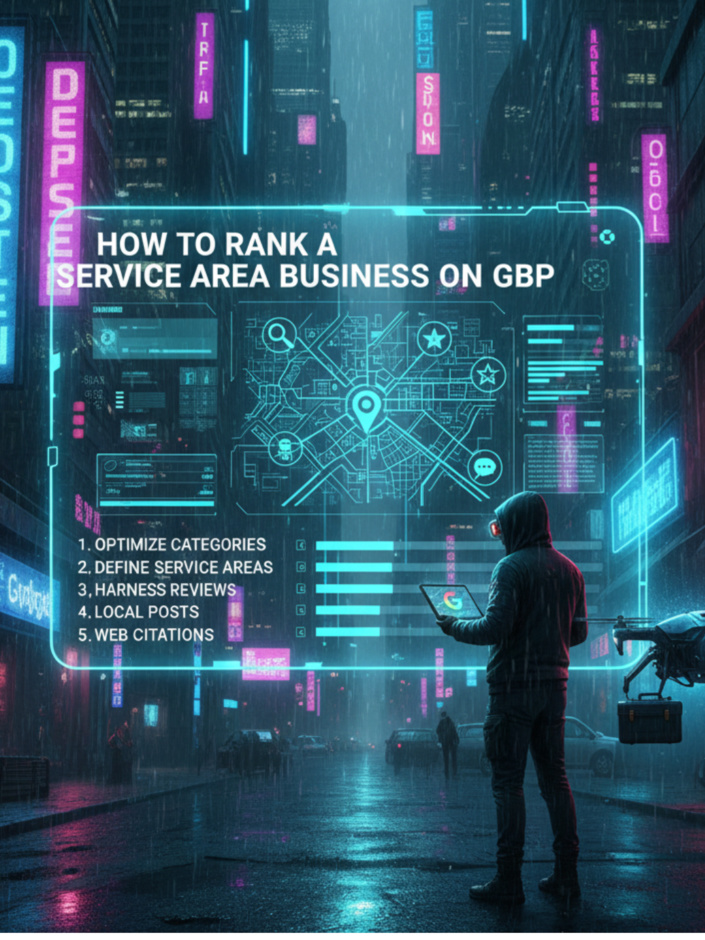23 SEO Blogging Mistakes to Avoid And How To Fix Them

Is your blog not getting the attention it deserves? Want your blog to shine online? Then SEO is your secret weapon!
But even the most enthusiastic bloggers can stumble into common SEO traps, hindering their content’s reach.
Don’t let these blogging mistakes hold you back!
This guide dives into 19 of the most frequent SEO blunders bloggers make, from keyword mishaps to technical glitches and beyond.
Think of it as your friendly SEO checklist!
We’ll not only point out these pitfalls – like neglecting keyword research, stuffing keywords unnecessarily, or overlooking mobile optimization.
But, more importantly, give you actionable fixes to get your blog back on track and attracting the audience it deserves.
We’ll cover everything from optimizing your blogging content and meta descriptions to building high-quality backlinks and avoiding duplicate content. No more guessing games!
Let’s make sure your hard work gets seen by the right people.
Ready to transform your blog’s performance and boost your search engine rankings?
Let’s dive in and fix those blogging mistakes together!
Key Takeaways
- Avoid keyword stuffing and focus on using relevant keywords naturally to enhance content quality and SEO performance.
- Regularly check for broken links and 404 errors to maintain a healthy blog and improve user experience.
- Optimize meta tags and header tags to help search engines understand your content better and improve rankings.
- Ensure your website is mobile-friendly and loads quickly to cater to the growing number of mobile users.
- Create top-notch backlinks and connect with your audience on social media to boost your blog’s credibility and reach.
- Utilize analytics tools effectively to track performance and adjust your SEO strategies based on data insights.
- Monitor Core Web Vitals to enhance user experience and meet Google’s ranking criteria.
Introduction to SEO Mistakes to avoid
Why Avoiding SEO Blogging Mistakes is Crucial
SEO errors can significantly impact your blog’s visibility and could greatly affect your blog’s performance.
If your blog ain’t set up correctly, search engines may have trouble figuring out your stuff, meaning less folks will see it.
Search engines may struggle to understand and rank your content properly, resulting in reduced traffic and engagement.
By identifying and fixing these issues, you can improve your blog’s reach and attract your target audience more effectively.
Likewise, sites like Rank Math SEO and Yoast SEO assist in improving your writing with live tips for phrases, clarity, and meta tags.
How SEO Mistakes Impact Your Blog’s Performance
When SEO errors stack up, big or small, your blog’s performance suffer.
Problems such as sluggish load times, bad keyword choices, or dead links might annoy visitors and drive them off.
Even worse, search engines could punish your website, making it tougher for your posts to rank.
To stop this, begin by using tools such as Google Search Console to check your blog’s condition.
It lets you follow mistakes like 404 errors or indexing troubles. Also, SEMrush gives detailed checks to find technical SEO issues and recommend solutions.
By figuring out and fixing these usual errors, you’ll make a blog that’s not just easy for users but also good for search engines.
This makes sure your stuff gets to the crowd it should while growing trust and power in your area.
Your Quick Cheat Sheet!
- Keywords: Use them naturally, focusing on what your readers are actually searching for (user intent!). No keyword stuffing!
- Content: Go deep! Provide real value, not just fluff. Quality over quantity, always.
- On-Page SEO: Optimize titles, meta descriptions, and headers – they’re like signposts for search engines.
- Images: Use descriptive alt text – search engines can’t “see” images like we do.
- Speed: Nobody likes a slow website! Optimize images and consider a faster hosting provider.
- Mobile-Friendly: Everyone’s on their phones! Make sure your blog looks great on all devices.
- Internal Links: Connect your posts! It helps users and search engines navigate your site.
- Broken Links: They’re a bad user experience. Regularly check for and fix them.
- Duplicate Content: Originality is key! Don’t copy content from other sites (or even your own).
- Analytics: Track your progress! See what’s working and what’s not.
- Promotion: Share your posts on social media and other platforms!
- Keyword Cannibalization: Don’t compete with yourself! Make sure each post targets unique keywords.
- Long-Tail Keywords: These longer, more specific phrases can bring in highly targeted traffic.
- Over-Optimizing: Don’t go overboard! SEO should feel natural.
- Content Updates: Keep your content fresh! Update old posts with new information.
- Backlinks: Earn links from other reputable websites. They’re like votes of confidence.
- User Experience: Make sure your blog is easy to navigate and enjoyable to read.
- SEO Strategy: Plan your content and keyword strategy in advance.
- Patience: SEO takes time! Be patient and consistent.
19 SEO Blogging Mistakes to Avoid And How To Fix Them
Content-Related SEO Mistakes
1. Keyword Stuffing and Irrelevant Keywords
Keyword stuffing happens when you pack way too many keywords into your writing, trying to rank better.
But search engines such as Google are sharper now—they value quality more than quantity.
Instead of stuffing your blog with keywords, concentrate on adding them naturally.
Tools like The Digital Malik offer keyword research templates to assist you in finding related words that match your content smoothly.
Likewise, Ahrefs helps you locate keywords with big search numbers and little competition.
2. Publishing Low-Quality or Duplicate Content
Low-quality or repeated material might hurt your blog’s trustworthiness and position. Search engines like new, useful info that solves users’ problems.
To stop this error, always try to make unique, well-studied articles.
Tools such as Grammarly could assist in improving your writing, while Copyscape makes sure your work isn’t copied.
The Digital Malik also gives content-making tips to help you create interesting and special blog posts.
3. Ignoring User Intent in Content Creation
User purpose is about figuring out what your readers are searching for.
If your material doesn’t fit their wants, they’ll exit your page fast, raising your bounce percentage.
To match with user purpose, begin by studying search terms. Tools such as AnswerThePublic reveal what folks are looking for in your area.
The Digital Malik highlights making content that directly answers user queries, keeping your site useful and important.
By dodging these content-related errors, you’ll not just boost your blog’s SEO but also make a nicer time for your audience.
4. Duplicate Content
Originality is paramount! Never copy content. Use Copyscape to check for plagiarism.
On-Page SEO Mistakes

5. Missing or Poorly Optimized Meta Tags
Meta tags, such as title tags and meta descriptions, are important for helping search engines figure out your content.
If they’re gone or badly optimized, your blog might not rank high. To solve this, make sure every page has its own unique and clear meta tag.
The Digital Malik gives templates to create good meta tags that fit your target keywords naturally.
Tools like Yoast SEO can also help you with improving meta tags right inside WordPress.
6. Improper Use of Header Tags
Header tags (H1, H2, H3, etc.) organize your writing and help readers and search engines move through it.
This structure helps both readers and search engines understand your content.
7. Neglecting Internal Linking Strategies
Connect your posts! Internal links tie your blog posts and pages together, helping visitors navigate your site and improving SEO.
Ignoring this method might damage your blog’s success. Include links to similar posts naturally in your writing.
For instance, if you’re talking about SEO tools, connect to a post about researching keywords.
Tools such as Link Whisper may suggest internal links automatically for WordPress users.
By fixing these on-page SEO errors, you’ll build a site that’s user-focused and improved for search tools, making sure of higher positions and interaction.
Technical SEO Mistakes
8. Slow Website Loading Speed
Nobody likes a slow website! A sluggish website might annoy users and make them leave before the page fully appears.
Search engines also favor quick sites, so speed matters a lot for rankings. To make your site faster, begin by shrinking images and picking a trustworthy hosting service.
The Digital Malik gives easy-to-follow tips to enhance site performance. Plus, tools such as Google PageSpeed Insights and GTmetrix check your site and give useful advice to improve speed.
9. Broken Links and 404 Errors
Regularly check for and fix broken links. Broken links and 404 errors don’t just hurt user experience but also show search engines that your website isn’t taken care of.
Often check for broken links and repair them to keep your website in good shape.
Tools such as Broken Link Checker or Screaming Frog can assist you in spotting and solving these problems fast.
10. Non-Mobile-Friendly Website Design
Your blog must be mobile-friendly. With most people surfing on phones, having a phone-friendly layout is a must.
If your website isn’t set up for mobile, you might lose a big chunk of your visitors.
Try responsive design tools to make sure your site works well on every device.
The Digital Malik gives tools to build mobile-friendly sites that improve user experience. You could also try Google’s Mobile-Friendly Test to see if your site works on mobile and get tips to fix it.
By fixing these technical SEO errors, you’ll make a better experience for your readers and boost your site’s search engine results.
Off-Page SEO Mistakes

11. Building Low-Quality Backlinks
Focus on earning high-quality backlinks from reputable websites. Backlinks are important for SEO, but not every link is made the same.
Making bad or spammy backlinks might hurt your blog’s trust and rankings. Instead, aim to get good-quality links from trusted sites.
Tools such as Ahrefs and Moz Link Explorer help you check your backlink profile and find spots to improve.
12. Ignoring Social Media Signals
Promote your content on social media! Social media has a huge part in bringing visitors and growing trust for your blog.
Overlooking social media signs, like shares or interactions, might reduce your blog’s audience.
Post your stuff on sites like Instagram, Twitter, and LinkedIn to boost exposure.
The Digital Malik highlights adding social media into your SEO plan and gives templates for making SEO Optimized blog posts.
Apps like Buffer or Hootsuite assist you in planning and handling your social media efforts well.
12. Overlooking Brand Mentions and Online Reputation
Monitor mentions of your brand online and engage with them. Your online image counts. Ignoring brand shoutouts—good or bad—might damage your trustworthiness.
Keep an eye on mentions of your site or name to connect with your crowd and fix any issues.
The Digital Malik shows why managing reputation matters and shares tools to follow brand mentions.
Stuff like Google Alerts and Brand24 will alert you when your site gets mentioned online, letting you reply fast.
By skipping these off-site SEO errors, you’ll boost your blog’s credibility, grow its audience, and create a good image that pulls in extra readers.
Analytics and Monitoring Mistakes
14. Not Using Analytics Tools Effectively
Use Google Analytics to track your blog’s performance. Analytics tools are super important for figuring out how your blog is doing, but lots of bloggers either skip them or don’t use them right.
Without good info, you’re basically guessing. Begin by setting up Google Analytics to monitor your visitors, audience actions, and conversions.
Tools such as Hotjar also give heatmaps to display how people use your website.
15. Failing to Track and Adjust SEO Strategies
SEO is an ongoing process! SEO isn’t a one-and-done job—it needs regular checking and tweaks.
If you’re not keeping track of your plans, you can’t tell what’s effective or what isn’t.
Try tools such as SEMrush or Ahrefs to check your keyword positions, backlinks, and general SEO status.
The Digital Malik highlights the value of frequent SEO reviews and gives templates to assist you in improving your plans as time goes on.
16. Ignoring Core Web Vitals and User Experience Metrics
These are crucial for user experience and SEO. Core Web Vitals, such as how fast pages load, interaction, and how steady visuals are, are now important ranking factors for Google.
Not paying attention to these stats might damage your blog’s success.
Try Google Search Console to check your Core Web Vitals and find spots to fix.
Tools like Lighthouse can also assist you in improving these stats.
By dodging these analysis and tracking errors, you’ll get useful info about your blog’s success and make sure your SEO plans remain steady.
Other Common Mistakes
17. Keyword Cannibalization:
Don’t compete with yourself! Make sure each post targets unique keywords.
18. Ignoring Long-Tail Keywords:
These longer, more specific phrases can bring in highly targeted traffic.
19. Over-Optimizing:
Don’t go overboard! SEO should feel natural. Focus on creating great content for your readers first.
20. Neglecting Content Updates:
Keep your content fresh! Update old posts with new information to keep them relevant.
21. Not Having an SEO Strategy:
Plan your content and keyword strategy in advance. This will help you stay focused and achieve your goals
22. Giving Up Too Soon:
SEO takes time! Be patient and consistent. The results will come.
23. Impatience:
Expecting immediate results Solution: Understand that SEO is a long-term investment. Monitor progress and adjust strategies based on data.
Remember, SEO success comes from consistent effort and attention to detail.
Start addressing these issues one by one, and you’ll see improved visibility and engagement over time.
SEO is a journey, not a destination.
Stay focused, and you’ll see the results! 🚀
Final Thoughts
Avoiding usual SEO errors is key for the success of your website.
In this piece, we’ve looked at 19 problems that might hurt your site’s visibility, like overusing keywords and bad-quality writing, to ignoring technical SEO or tracking data.
By fixing these problems, you’ll make a blog that’s easier for users, search-engine-friendly, and keeps readers coming back.
The main point here is that SEO isn’t only about making search engines happy—it’s about giving worth to your readers.
Concentrate on making top-notch, useful content, improving your site’s technical parts, and forming real connections through backlinks and social platforms.
Keep an eye on your results using tools such as Google Analytics, then tweak your plans to stay ahead in the always-changing online world.
If you’re feeling stressed or not sure where to begin, The Digital Malik is here to assist.
Whether you’re searching for key tools, useful strategies, or expert advice, The Digital Malik will help you boost your blogging work.
Their materials are made to power your online business journey, making it simpler for you to focus on what you do best—and that’s creating awesome stuff.
Remember, SEO is an ongoing process, not just a single task.
By keeping yourself updated, steering clear of these usual errors, and using expert help like The Digital Malik, you’re on the path to creating a strong and lasting blog.
Now, it’s time to act and see your blog grow.
Frequently Asked Questions (FAQs)
What are some common SEO mistakes bloggers make?
Some usual SEO blunders consist of keyword stuffing, posting low-quality content, missing meta tags, and ignoring mobile optimization. These mistakes can greatly affect your blog’s visibility and user experience.
How can I identify SEO mistakes on my blog?
You can spot SEO errors by utilizing tools such as Google Search Console and SEMrush. These tools give information about your blog’s performance, pointing out problems like broken links, slow loading times, and keyword optimization issues.
Why is it important to avoid SEO mistakes?
Avoiding SEO errors is important because they can block your blog’s visibility in search engine outcomes. This results in less visitors and possible readers, which can finally influence your blog’s achievement and development.
How can I fix SEO mistakes on my blog?
Can SEO mistakes affect my blog’s ranking on search engines?
Yes, SEO errors can harm your blog’s position on search engines. Problems like bad keyword use, damaged links, and slow loading speeds can result in lower rankings, making it tougher for users to discover your content.






